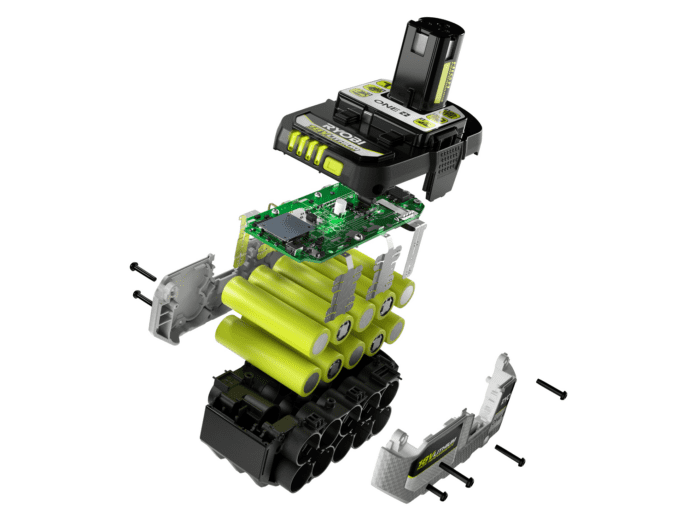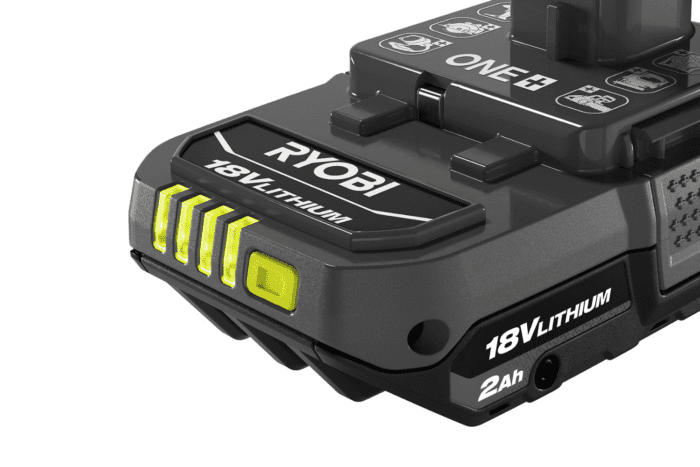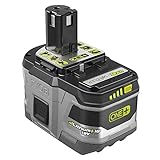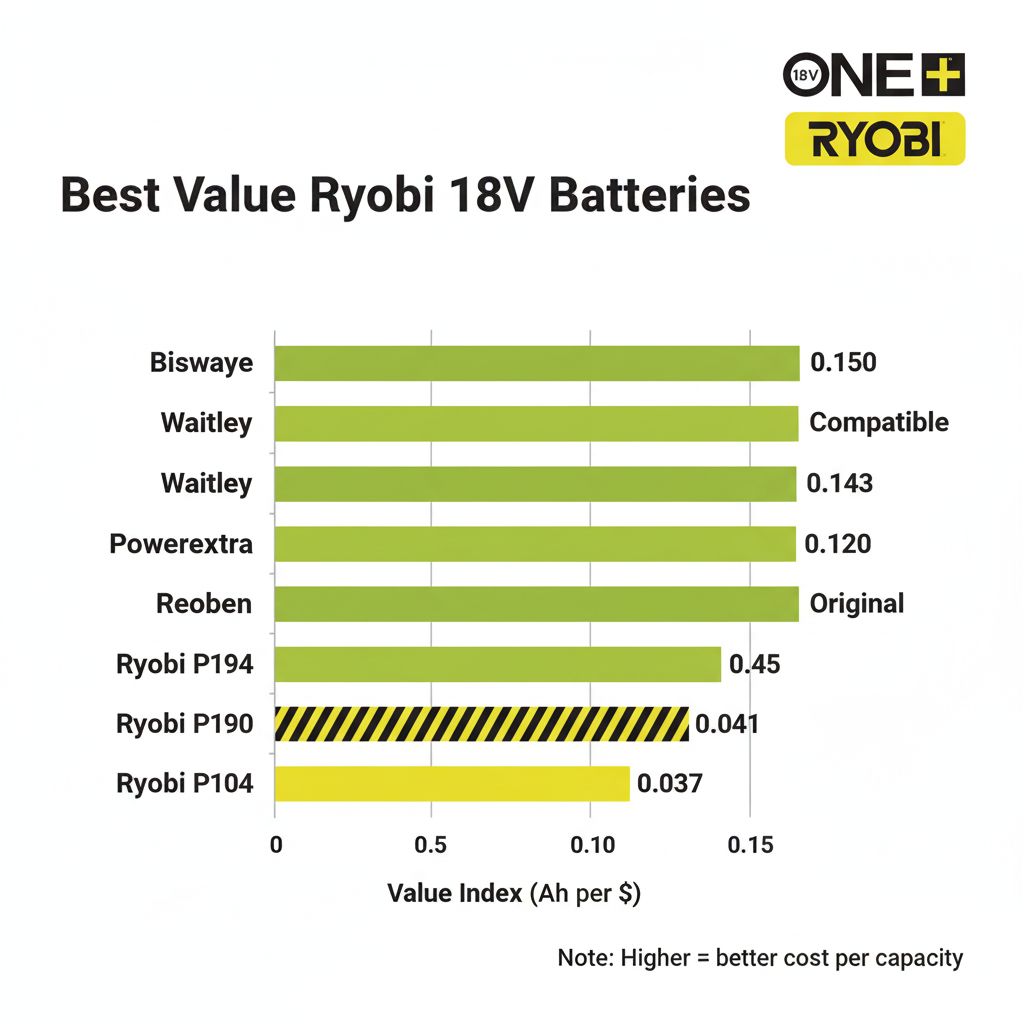Hello hobbyist. Today I want to tell you about Ryobi batteries.
As with other brands, Ryobi also offers a series of interchangeable batteries on its cordless devices, which allows you to save on the purchase of tools and use a single battery for all.
What I want to analyze here is which battery to choose from the various available.
The two lines of Ryobi batteries
Ryobi basically has two lines of batteries, the Ryobi 18 Volt lithium battery, and the Ryobi 40V lithium battery ones.
The 18V batteries are the ones we will examine in this article and can be used on over 40 different small and medium power devices such as sanders, drills, saws, etc.
At the same time, the 40V line serves devices that need more power, such as lawnmowers or high-intensity blowers.
Compatibility between old and new
Ryobi batteries are compatible with all Ryobi products, both old and new. It would be best if you carefully choose the correct battery line.
Ryobi 18V batteries are compatible with old devices, so old batteries are also compatible with new ones. This is a big plus for anyone who bought Ryobi tools several years ago.

However, there are adapters on the market that allow you to use batteries that are otherwise incompatible with your Ryobi tools.
Battery Adapter for Ryobi 18V Cordless Tools…Can a 40V Ryobi battery be compatible with Ryobi 18V tool?
It is possible to use a 40V Ryobi battery in an 18V tool. The battery’s voltage needs to match the voltage of the tool to work properly. A DC converter can be used to step down the voltage from 40V to 18V, but this requires additional parts and components that may need to be able to handle the amount of wattage necessary. Using a 40V Ryobi battery in an 18V tool is not recommended as it could lead to hazardous situations.
Charge Indicator
These Ryobi 18v one batteries are built with Lithium cells and feature a convenient display that indicates the charge status.
There are four LED notches; if they are all on, the battery is charged at 100%, and each notch that is turned off determines a decrease of 25%, so we will have 75%, 50%, and 25%

ONE +, High Performance or High Capacity, which one to choose?
Ryobi 18V batteries are similar in various Ah capacities, but three different types of electronics can be useful in certain cases.
As for the various Ah, I’ll show you the differences shortly, while for the construction types, I can tell you that for most cases, the normal ONE + is just fine. High performance can come in handy when we need to provide extended life and can’t recharge easily, while High Capacity is designed to give more power.
From our tests, it has emerged that the normal ONE + is the best choice for performance and price ratio.
Weight and dimensions are to be considered.
Larger-capacity batteries are also larger and heavier. For example, 2 Ah batteries weigh 1 pound, while 9 Ah batteries weigh around 3 pounds. So if we have to do jobs that require an average of 30/40 minutes, it is better to opt for a 2 Ah model. Space is also important on the 9 Ah models, and some tools may be uncomfortable.
Capacity and Charging
More is better? It is only sometimes true. Certainly, there is a certain optimization of both the weight and price ratio if you go up the model, but it only sometimes justifies the purchase.
Ryobi batteries take about 20 minutes to recharge every Ah, which means that a 2 Ah battery will take 40 minutes to recharge while a 9 Ah battery will take 180.
Which battery for DIY jobs?








Given the tests and various battery behavior, the 2 Ah battery is the most versatile for DIY jobs. This is because it is light and allows us to use our sander or drill with the right intensity for about 30 minutes.
Consider, for example, that the Ryobi Sander gives its best on jobs for up to 40 minutes. Afterward, it starts to overheat too much, so having a battery with too much capacity is useless.
My choice falls on the pack of 2 Ah batteries combined with the charger. They will allow you to always have energy by being able to interchange and recharge one while using the other.



